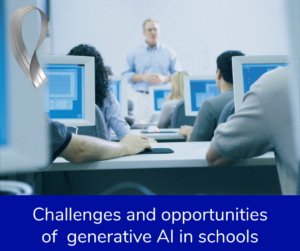Response to the House of Representatives Standing Committee on Employment, Education and Training Inquiry into the issues and opportunities presented by generative Artificial Intelligence (AI) and exploration of current and future impacts on education.
Since the commencement of the 2023 academic year, with the rapid emergence of OpenAI’s advanced language model ChatGPT, Independent schools have been investigating the implications of the use of generative AI technologies in education. As generative AI is a relatively new technology with the ability to generate new content (image, text or animation) through ‘machine learning’ and imitate human writing, its long-term educational impacts on teaching, assessment and student outcomes are unclear.
Many Independent schools are seeking evidence-based guidelines to manage privacy risks, data security and copyright considerations to support the ethical implementation of generative AI, including examples of best-practice policies. Although there are many recognised benefits and potential for generative AI to contribute to education, the speed with which new AI products are being released on the market is raising concern for Independent schools as they investigate and navigate the risks and opportunities for teachers, students and the future of education.
A comprehensive national framework for the ethical and safe use of AI in education, such as that currently being developed for the school sector under the auspices of the Education Ministers Meeting (EMM), would therefore be of great benefit as the education sector navigates this difficult terrain.
ISA consulted with the eight state and territory Associations of Independent Schools (AISs) in preparing this submission.
This submission also includes six case studies of Independent schools, highlighting a range of approaches to the use of generative AI in schools.




